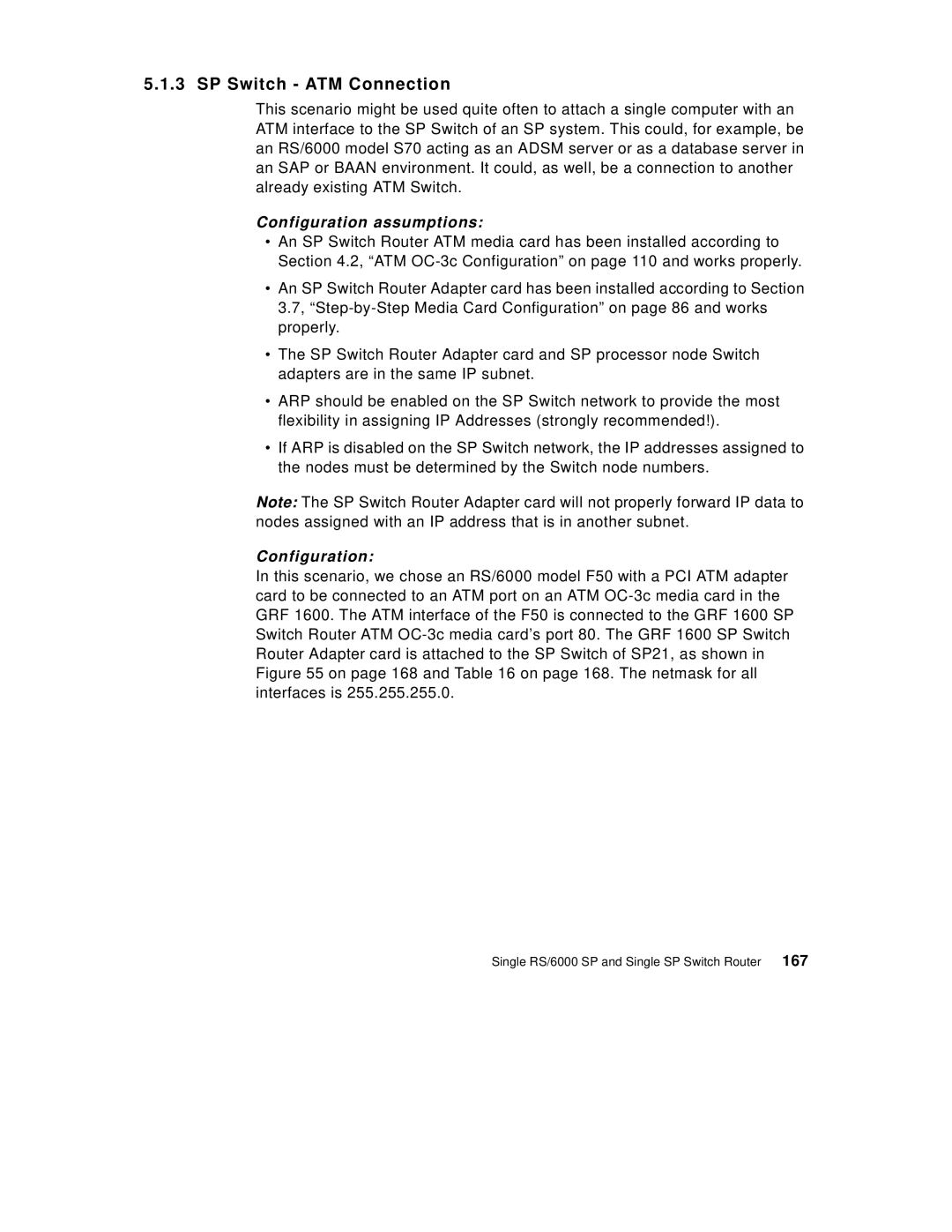5.1.3 SP Switch - ATM Connection
This scenario might be used quite often to attach a single computer with an ATM interface to the SP Switch of an SP system. This could, for example, be an RS/6000 model S70 acting as an ADSM server or as a database server in an SAP or BAAN environment. It could, as well, be a connection to another already existing ATM Switch.
Configuration assumptions:
•An SP Switch Router ATM media card has been installed according to Section 4.2, “ATM
•An SP Switch Router Adapter card has been installed according to Section 3.7,
•The SP Switch Router Adapter card and SP processor node Switch adapters are in the same IP subnet.
•ARP should be enabled on the SP Switch network to provide the most flexibility in assigning IP Addresses (strongly recommended!).
•If ARP is disabled on the SP Switch network, the IP addresses assigned to the nodes must be determined by the Switch node numbers.
Note: The SP Switch Router Adapter card will not properly forward IP data to nodes assigned with an IP address that is in another subnet.
Configuration:
In this scenario, we chose an RS/6000 model F50 with a PCI ATM adapter card to be connected to an ATM port on an ATM
Single RS/6000 SP and Single SP Switch Router 167
